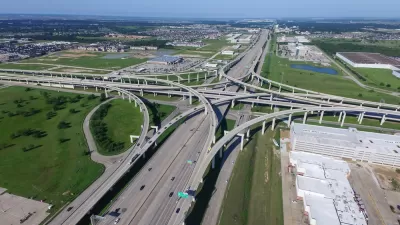Former Secretary of Labor Robert Reich gives his two cents about the need to expand public transit.
"For years, policymakers have wondered just how high gas prices would have to go before drivers switch to public transportation. The answer has been assumed to be very high because Americans supposedly are in love with our cars. Yet now we know there's a tipping point, and it's not quite as high as policymakers have guessed. It's around $4 a gallon. We know that's the tipping piont because suddenly millions of Americans are switching to buses, trains and subways to go to work.
Rather than bemoaning this remarkable turnaround we should be celebrating it because public transit not only reduces congestion but also reduces the nation's energy needs and cuts carbon emissions that bring on global warming.
Problem is, the nation doesn't have nearly enough public transportation to handle the new demand. Even more absurdly, right now when it's needed the most, public transportation across the land is being cut back. This is because transit costs are soaring by the same skyrocketing fuel prices that are forcing people out of their cars, at the same time transit revenues are shrinking because most transit systems depend largely on sales taxes, now dwindling as consumer purchases decline in this recession. A survey of the nation's public transit agencies released last Friday showed 21 percent of rail operators now cutting back and 19 percent of bus operators."
Thanks to Jeff Wood
FULL STORY: With Gas at $4 a Gallon, We Need Public Transportation, But Why We Can't Get It

Alabama: Trump Terminates Settlements for Black Communities Harmed By Raw Sewage
Trump deemed the landmark civil rights agreement “illegal DEI and environmental justice policy.”

Study: Maui’s Plan to Convert Vacation Rentals to Long-Term Housing Could Cause Nearly $1 Billion Economic Loss
The plan would reduce visitor accommodation by 25% resulting in 1,900 jobs lost.

Why Should We Subsidize Public Transportation?
Many public transit agencies face financial stress due to rising costs, declining fare revenue, and declining subsidies. Transit advocates must provide a strong business case for increasing public transit funding.

Wind Energy on the Rise Despite Federal Policy Reversal
The Trump administration is revoking federal support for renewable energy, but demand for new projects continues unabated.

Passengers Flock to Caltrain After Electrification
The new electric trains are running faster and more reliably, leading to strong ridership growth on the Bay Area rail system.

Texas Churches Rally Behind ‘Yes in God’s Back Yard’ Legislation
Religious leaders want the state to reduce zoning regulations to streamline leasing church-owned land to housing developers.
Urban Design for Planners 1: Software Tools
This six-course series explores essential urban design concepts using open source software and equips planners with the tools they need to participate fully in the urban design process.
Planning for Universal Design
Learn the tools for implementing Universal Design in planning regulations.
Caltrans
Smith Gee Studio
Institute for Housing and Urban Development Studies (IHS)
City of Grandview
Harvard GSD Executive Education
Toledo-Lucas County Plan Commissions
Salt Lake City
NYU Wagner Graduate School of Public Service




























